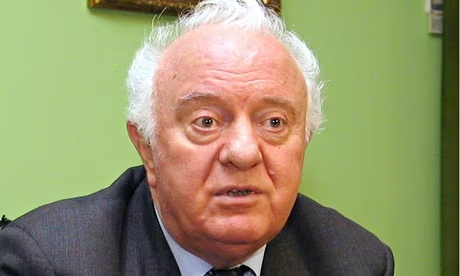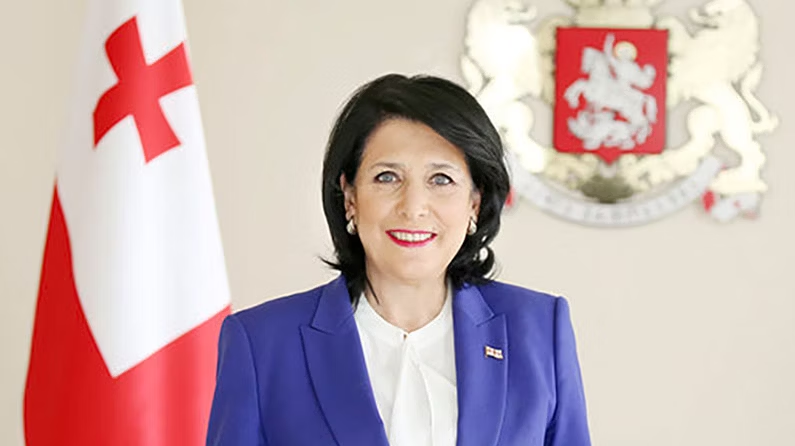Exploring Georgia’s Presidents: From Independence to Today
Below is a comprehensive list of all the presidents of Georgia since the office was created in 1991:
| No. | Name | Term(s) | Political Affiliation |
|---|---|---|---|
| 1 | Zviad Gamsakhurdia | 1991 – 1992 | Round Table-Free Georgia |
| 2 | Eduard Shevardnadze | 1995 – 2003 | Union of Citizens of Georgia |
| 3 | Nino Burjanadze (Acting) | Nov 23, 2003 – Jan 25, 2004 | Independent |
| 4 | Mikheil Saakashvili | 2004 – 2007; 2008 – 2013 | United National Movement |
| 5 | Giorgi Margvelashvili | 2013 – 2018 | Independent |
| 6 | Salome Zourabichvili | 2018 – Present | Independent (supported by Georgian Dream) |
Who Was Georgia’s First President?
Zviad Gamsakhurdia was the first president of Georgia, taking office in 1991 after the country gained independence from the Soviet Union.
On May 26, 1991, Gamsakhurdia won a nationwide election, becoming Georgia’s first democratically elected leader. His presidency, however, was short-lived.
Less than a year later, on January 6, 1992, a military coup forced him out of office. Even after his removal, Gamsakhurdia believed he was the legitimate president and fought to reclaim his role.
Tragically, he passed away on December 31, 1993, during his efforts to return to power. After his ousting, Eduard Shevardnadze, a prominent figure from the Soviet era, returned to Georgia in 1992 to lead the nation.
Shevardnadze became president in 1995 after a new constitution was adopted. He was re-elected in 2000 but faced growing unrest. In 2003, widespread protests, known as the Rose Revolution, led to his resignation.
After Shevardnadze stepped down, Nino Burjanadze, the parliament’s chairperson, briefly served as acting president.
On January 4, 2004, Mikheil Saakashvili, the leader of the Rose Revolution, was elected president. He served two terms, from 2004 to 2007 and 2008 to 2013, before stepping down early. Giorgi Margvelashvili followed, serving as president from 2013 to 2018.

Eduard Shevardnadze: A Key Figure in Georgian History
Eduard Shevardnadze was a significant leader in both Soviet and Georgian politics. Born on January 25, 1928, in a small Georgian village, he grew up in a rural setting.
His parents hoped he would become a doctor, but at age 20, he joined the Communist Party, launching his political career.
Shevardnadze rose quickly within Georgia’s Communist Party, becoming its leader by 1972, making him the region’s most powerful figure.
In 1985, Soviet leader Mikhail Gorbachev appointed him foreign minister of the Soviet Union. In this role, Shevardnadze helped end the Soviet war in Afghanistan and negotiated key arms control deals.
Known for his charisma and ability to connect with people from different cultures, he improved ties with Western nations.
However, in 1990, concerned about the Soviet Union’s resistance to reform, he resigned from his post.
After the Soviet Union dissolved in 1991, Shevardnadze returned to Georgia. In 1992, he took leadership during a turbulent period of civil war and political chaos.
As president from 1995 to 2003, Shevardnadze faced challenges like corruption and economic struggles. In 2003, accusations of election fraud sparked the Rose Revolution, a peaceful movement that led to his resignation on November 23, 2003.
After leaving office, Shevardnadze lived quietly in Tbilisi, largely out of the public eye. He passed away on July 7, 2014, after a prolonged illness.

Who Is Georgia’s Current President?
Salome Zourabichvili is the current president of Georgia, serving since December 16, 2018.
She made history as Georgia’s first female president. Born on March 18, 1952, in Paris, France, she grew up in a family of Georgian political refugees.
Zourabichvili had a long career in French diplomacy before serving as France’s ambassador to Georgia. In 2004, she became a Georgian citizen.
She later served as Georgia’s foreign minister, where she played a key role in negotiating the withdrawal of Russian troops from parts of the country.
Running as an independent candidate, Zourabichvili won the presidency in 2018. Her term is notable because, starting in 2024, Georgia’s presidents will be chosen by a parliamentary electoral college rather than direct public vote, making her the last directly elected president.

